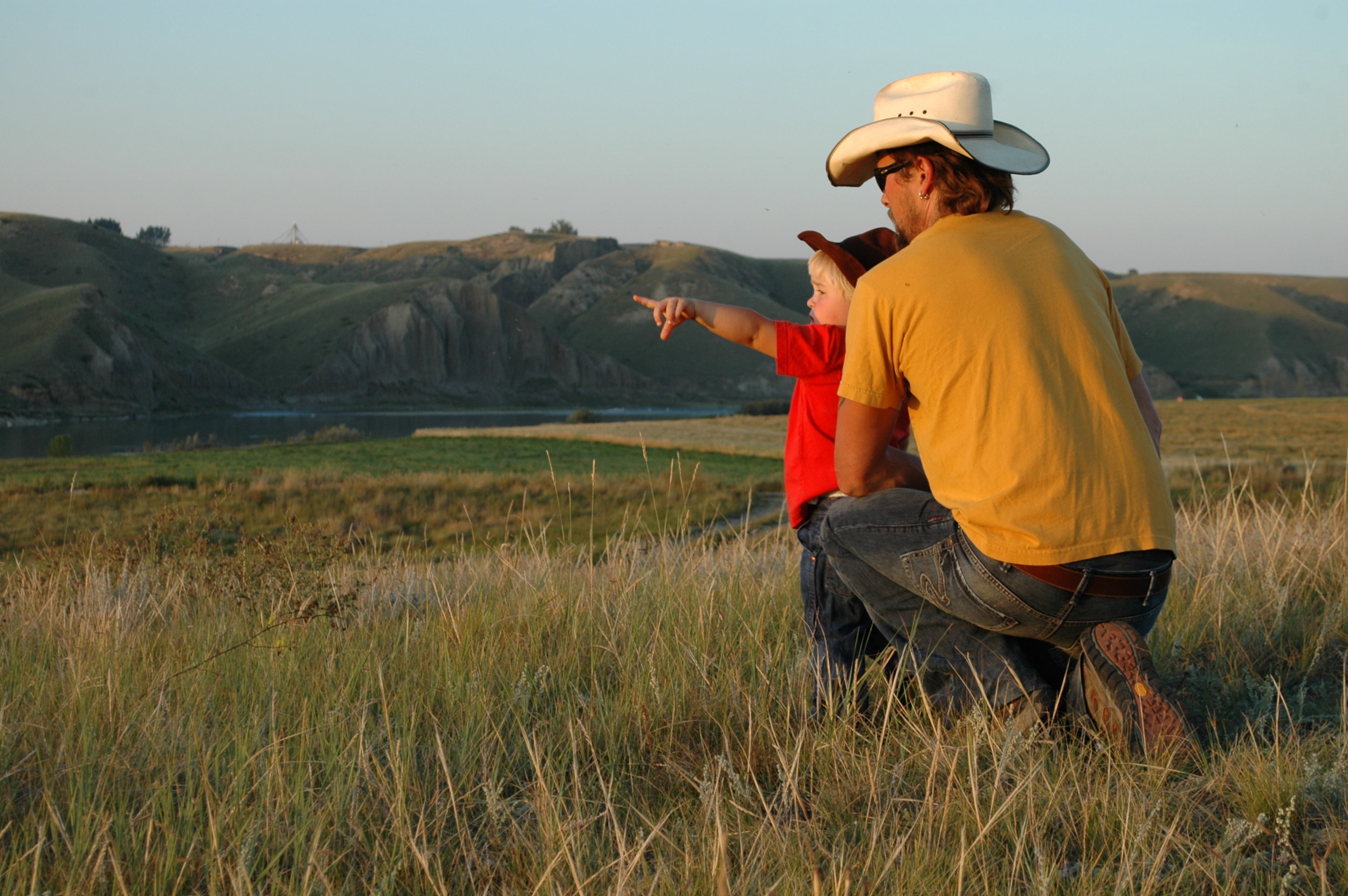*By Taren Hager, OWC Staff
Be sure to check our Event Notice for Stavely and Twin Butte at the bottom of the article. Our rural Voices of the Oldman series is one way OWC helps mitigate some of the adverse affects of agriculture on the watershed and support stewardship projects. Let's hear your voice at the table! Coming up soon - please register (It's free, but we still need you to register!). Thanks - and see you there!*
Did you know today (February 16, 2017) we celebrate Canada’s Agriculture?
1. TASTY FOOD
There are many reasons to celebrate agriculture. One of the main reasons, and I think most would agree - the #1 reason is fresh, tasty, local FOOD. As you sit there and eat your breakfast/lunch/supper/snack, take a moment to ponder… where did this food come from? The answer is NOT the grocery store, which is only the place where you purchased the food. Dig deeper and take a REAL look at where you food came from. What are the chances that the food you are eating at this VERY moment was grown or produced in Canada?
To eat only “Canada-grown” food, you have to be selective and pay attention to the packaging of products when you are purchasing your groceries at the local market. They might say “Made in Canada” or “Locally Grown”. As you know, not all of our food comes from Canada and I would think it is fair to say that ALOT of our food doesn't come from Canada. I am not suggesting that this is bad thing. We simply can not grow everything here in Canada, and we only have a specific time period in which we can grow what we can.
Fun Fact: The world will need 60% more food by 2050 and we (Canada) will help fill that demand - Agriculture More Than Ever.
2. Heart & Soul
Many farmers, ranchers, and producers put their hearts and souls into everything they do. They are both passionate and knowledgeable about their operations: from growing crops like wheat, for example (to make bread); raising animals (like cows, pigs and chicken for meat, eggs & dairy products); growing gardens (that produce veggies and fruit); to even raising bees (for that deliciously sweet honey on your toast or in your tea). You won't find a group of people who work so hard, through many generations and have a great passion for the food that makes it onto our plates.
Fun Fact: 98% of farms are family farms - Agriculture More Than Ever.
3. Watershed Stewards
Most people who depend on the land for their living are conscientious of how their practices impact the land and water - the watershed. Of course there is room for improvement but farming practices have come a long way. Ike Skelton once said, “Because of their connection to the land, farmers do more to protect and preserve our environment than almost anyone else.” Quite often, people tend to focus on the “bad” things that they see and don’t release how far agricultural practices have come in the past 40 years.
When I mention the word practices, I mean specifically “Best Management Practices” or BMPs for short. BMPs are practices used by farmers, ranchers and alike that are the most efficient or practical means of reaching a goal while making optimum use of the resource. For example: cattle grazing rotations on pastures to manage and maintain native grassland; providing off-stream watering systems for cattle to drink from that limits their impacts on water quality and provides a safe source of drinking water; growing crops with centre pivots equipped with drop nozzles and coupled with irrigation scheduling and crop/soil monitoring - to be more efficient with the water being applied on the field.
Fun fact: Minimum tillage saves over 170 million litres of fuel from being burned annually and Canada (and is good for soil health!) - Agriculture More Than Ever.
Farmers and ag-related organizations (like Farming Smarter, for example) continue to be innovative by looking for new ways to improve practices in agriculture. This means being more efficient, effective and optimize results at the end of the year. To summarize in layman’s terms, if they don’t look after the land & the water, the land & water won’t look after them!
How does the OWC celebrate Canadian Ag Day #CdnAgDay?
Well, the OWC celebrates agriculture year round! The Oldman watershed is right in the middle of the agricultural hub of southern Alberta. Agriculture is the main industry force. It drives the economic success of the region and is the main user of land and water in the Oldman basin. Therefore, it has always been important for the OWC to work closely and collaboratively with those in the Ag community year round.
The OWC has the Watershed Legacy Program that has been active for many years and provides the tools necessary for watershed stewardship groups (WSGs) and landowner cooperatives to take the next steps towards sustainable management of their land and operations. We support projects such as riparian exclusion fencing, off-stream watering, weed pulls and soil bioengineering, just to name a few!
To find out more about how you can get involved with WLP or to submit an application for a project, please visit our website (WLP Page).
The OWC has partnered with the Taber Irrigation District (TID) to promote their Integrated Watershed Management and Natural Restoration Project using the OWC’s lines of communication to highlight the project within the watershed and to encourage this type of stewardship.
In partnership with other collaborators, including the Government of Alberta – Agriculture and Forestry, Alberta Conservation Association, Municipal District of Taber, St. Mary River Irrigation District and the Town of Taber, TID’s proposed project will improve watershed health through constructed wetlands, riparian enhancements and/or open canal improvements.
We have also partnered with the Potato Growers of Alberta on our Film Project to produce 3 videos about where our food comes from. There is a science video (getting some final edits done!), a kids' video (click here to view) and a video about consumer choices (currently in post-production). The idea is to help those in the watershed understand the complicated process on how their food (in this instance, PO-TA-TOES) gets from the soil to their plates! Find out more about the film project and to check out our other vidoes visit:www.oldmanwatershed.ca.
The OWC would like to extend a sincere thank you to our rural partners and collaborators for all your hard work and to those “boots on the ground” folks working hard to be good stewards of the land/water and bring food to our plates -we celebrate you today!
Find out more about the celebrations going on today for Canadian Ag Day at: https://www.agriculturemorethanever.ca/cdn-ag-day
DON’T FORGET! We still have 2 sessions coming up for those in rural community in the Oldman waterhsed to have their input. In case you haven’t heard yet the Voices of the Oldman: Ag Matters session in Twin Butte was re-scheduled due to weather, this means you still have a chance to attend that event – which is now on Wednesday, March 8, 2017 from 1-4pm – the NCC Eat and Greet is also re-scheduled for the same day and begins shortly after the discussions at 5:30p.m.
The Stavely & Area session is the NEXT session on Wednesday, March 1, 2017 from 2-5pm at the Stavely Community Centre. Come on out, bring a neighbor and talk agricultural watershed stewardship with us. We want to hear what YOUR priorities, challenges, concerns are and how the OWC can best support the ag community as we make improvements to our ag programming.
For more information or to register online please visit our Eventbrite link: https://voicesoftheoldman_agmatters.eventbrite.ca or phone Taren Hager, Office Manager at (403) 849-1346.








